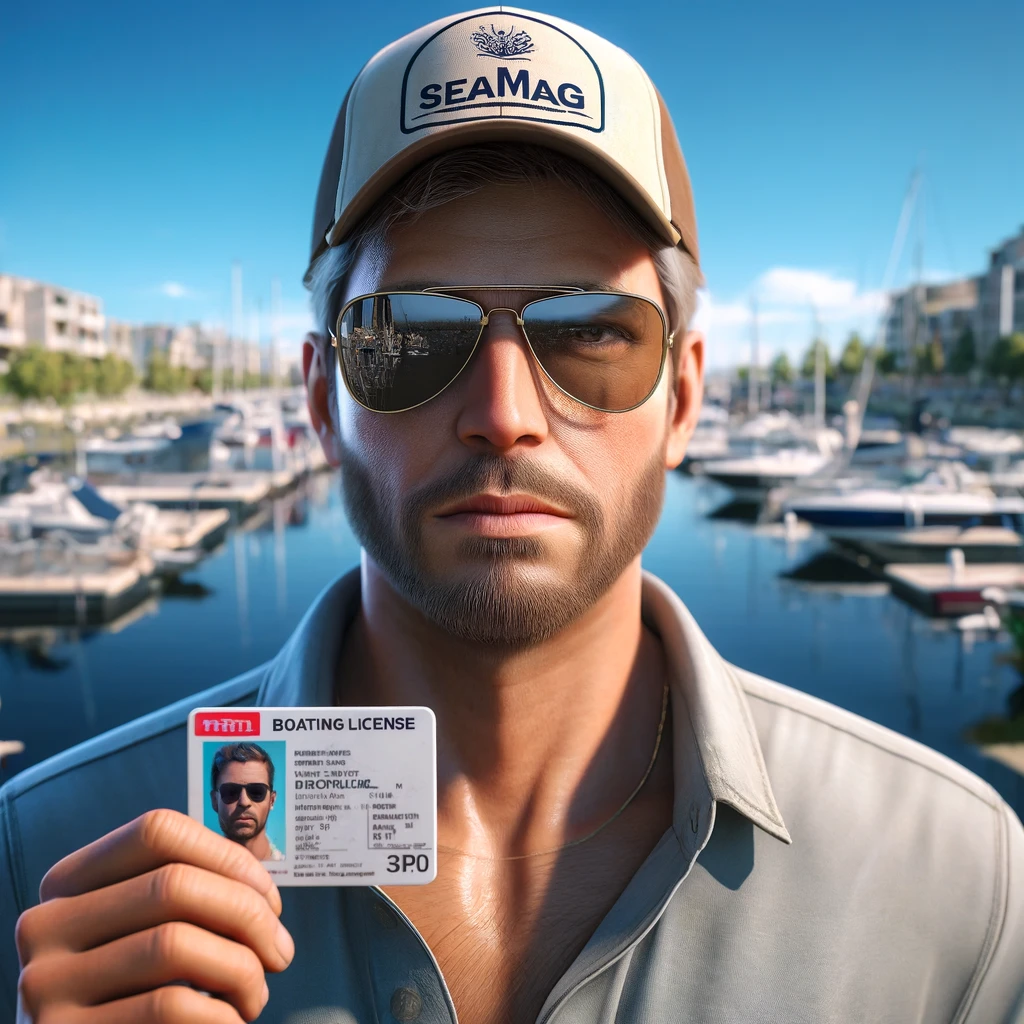At what breath alcohol level would a boater be considered "under the influence" in Florida? The boozy limit for boating
Boating is a fun way to enjoy Florida's waters. But mixing alcohol with boating can be dangerous. Many people wonder when a boater crosses the line into being legally impaired.

In Florida, a boater is considered "under the influence" if their breath alcohol level is 0.08 or higher. This matches the limit for driving a car. At this level, a person's judgement and reflexes are impaired enough to be unsafe on the water.
Law enforcement can stop boats and test operators they suspect of being drunk. Boaters who refuse testing or are over the limit may face serious penalties. To stay safe and legal, it's best to avoid drinking while boating. Assigning a sober skipper is a smart choice for a fun day on the water.
Understanding BUI and Alcohol Levels
Boating Under the Influence (BUI) is a serious offense in Florida. It's similar to driving under the influence, but it happens on the water.
In Florida, boaters are considered "under the influence" if their blood alcohol concentration (BAC) is 0.08% or higher. This is the same limit as for driving a car.
Law enforcement can use different tests to check a boater's alcohol level:
- Breathalyzer tests
- Blood tests
- Urine tests
These tests measure how much alcohol is in a person's system. The breathalyzer is the most common test used on the water.
For boaters under 21, the rules are stricter. Florida has a "Zero Tolerance" policy for young boaters. This means they can get in trouble with any amount of alcohol in their system.

It's important to know that alcohol can affect people differently on a boat. Sun, wind, and the motion of the water can make the effects of alcohol stronger.
To stay safe and legal, it's best not to drink at all while boating. Remember, the consequences of BUI can be serious, just like with a DUI on land.
The Legal Threshold for BUI in Florida
In Florida, boaters need to know the rules about drinking and boating. The state has set clear limits on how much alcohol a person can have in their system while operating a vessel.
Boaters in Florida are considered "under the influence" if their blood alcohol concentration (BAC) is 0.08% or higher. This is the same limit used for drivers on the road.
For folks under 21, the rules are stricter. Florida has a "zero tolerance" policy for young boaters. Even a tiny amount of alcohol can get them in trouble.

Here's a quick breakdown of BAC levels and what they mean:
- 0.00% - 0.07%: Legal for adults
- 0.08% and up: Legally impaired
- Any detectable amount for under 21: Violation
Law enforcement can check a boater's BAC using breath, blood, or urine tests. If someone refuses to take a test, they might face penalties too.
It's important to note that even with a BAC below 0.08%, a boater can still be charged if they show signs of impairment. The sun, waves, and boat motion can make alcohol hit harder on the water.
Boaters should play it safe and avoid alcohol altogether when operating a vessel. It's the best way to stay out of trouble and keep everyone safe on Florida's waters.
Penalties and Consequences of BUI
Breaking the rules on Florida's waters can lead to big problems. Boaters who drink too much face fines, jail time, and loss of boating rights.
Immediate Penalties for BUI Convictions
First-time BUI offenses in Florida can result in fines up to $1,000 and jail time up to 6 months. The court may also order community service hours. Boaters might have to take a substance abuse course.
For second convictions, penalties get tougher. Fines can reach $2,000 and jail time up to 9 months. Third-time offenders face even steeper consequences.
If a BUI causes serious bodily injury, it becomes a felony. This can mean up to 5 years in prison and $5,000 in fines.
Long-Term Impacts of BUI on Boating Privileges
A BUI conviction can have lasting effects on a person's boating rights. The court may suspend or revoke boating privileges for up to a year for first-time offenders.
Repeat offenders might lose their right to operate a boat for several years. In some cases, boaters may need to retake boating safety courses before getting back on the water.
A BUI also leaves a mark on a person's criminal record. This can make it harder to get jobs or rent homes in the future.
Repeat Offenses and Escalation of Penalties
Repeat BUI offenders face harsher punishments. A third conviction within 10 years is a felony. It can lead to up to 5 years in prison and $5,000 in fines.
If a BUI causes death, it's called BUI manslaughter. This serious felony can result in up to 15 years in prison. The boater might lose their boating privileges for life.
Courts often require longer probation periods and more intensive substance abuse treatment for repeat offenders. Some may have to use alcohol monitoring devices.
Field Sobriety and Chemical Tests
Law enforcement uses specific tests to check if boaters are under the influence. These tests help officers decide if a boater's abilities are affected by alcohol.
Standard Field Sobriety Tests Explained
Officers use three main tests to check for boating under the influence:
- Horizontal Gaze Nystagmus (HGN): The officer checks the boater's eye movement.
- Walk-and-Turn (WAT): The boater must walk in a straight line and turn around.
- One-Leg Stand (OLS): The person stands on one leg for a set time.
These tests look at balance, focus, and following directions. But they can be hard to do on a moving boat. Some health issues might also affect the results.
Officers need special training to give these tests correctly. They watch for specific signs that might show the boater is impaired.
Accuracy and Administration of Chemical Tests
Chemical tests measure the exact amount of alcohol in a person's system. These tests are more accurate than field sobriety tests.
Breath tests are common for checking blood alcohol concentration (BAC). In Florida, the legal limit for boaters is 0.08% BAC.
Officers must follow strict rules when giving these tests. The machines need regular checks to make sure they work right.
Some factors can affect test results:
- Recent alcohol use
- Certain medical conditions
- Some types of food
If a boater refuses a breath test, they might face legal trouble. It's important to know your rights if asked to take a chemical test on the water.
The Role of Legal Representation in BUI Cases
Getting a good DUI attorney is super important if you're facing a BUI charge in Florida. These lawyers know all the ins and outs of boating laws and can really help your case.
A skilled attorney can look at the evidence against you with a critical eye. They might find issues with how the cops handled things or problems with the breath test results.
Legal pros can also bring in expert testimony to back up your side of the story. These experts can explain stuff like how being on a boat can mess with breath test accuracy.
Video evidence can be a game-changer in BUI cases. A good lawyer will know how to use any footage to your advantage or challenge videos that don't look great for you.
Remember, the cops and prosecutors have their own legal teams. Having your own attorney levels the playing field and gives you a fighting chance.
Your lawyer can also help you understand the possible outcomes and work out the best strategy for your case. They might even be able to get the charges reduced or dropped in some situations.
Preventing BUI Incidents
Boating and drinking don't mix. To avoid BUI troubles, boaters can take some easy steps.
Plan ahead. Decide who will be the "designated captain" before hitting the water. This person stays sober and keeps everyone safe.
Pack plenty of non-alcoholic drinks. Water, soda, and juice are great choices for a day on the boat.
Eat snacks throughout the day. Food helps slow down alcohol absorption.
Know the legal BAC limit of 0.08% for boaters in Florida. It's best to stay well below this.
Take a boating safety course. These often cover the risks of BUI and how to avoid them.
Watch out for friends. Don't let anyone who's been drinking take the helm.
Consider leaving the booze on shore. A alcohol-free day can be just as fun and much safer.
Remember, sun and wind can make alcohol's effects stronger on the water.
If in doubt, don't go out. Bad weather plus alcohol is a recipe for disaster.
By following these tips, boaters can have a great time while staying safe and legal on Florida's waters.
Understanding Florida Statutes on BUI
Florida takes boating under the influence seriously. The state has laws to keep waterways safe.
Florida Statute 327.35 lays out the rules for BUI. It says a person is boating under the influence if they're operating a vessel with a blood-alcohol level of 0.08% or higher.
This limit matches the one for driving a car. But boating can be trickier than driving.
The law considers a few things that make boating different:
- Less experience of boat operators
- More distractions on the water
- Effects of sun, wind, and boat motion
For young boaters, the rules are stricter. Florida has a "Zero Tolerance" policy for those under 21.
The legal framework allows for random tests. Boaters might need to take alcohol or drug tests if stopped.
Penalties for BUI can be tough. They may include:
- Fines
- Jail time
- Loss of boating privileges
The law aims to keep everyone safe on Florida's waters. It's best to avoid alcohol when boating.
Frequently Asked Questions
Boating laws in Florida cover important topics like alcohol limits, required safety gear, and age restrictions. These rules aim to keep everyone safe on the water.
What's the legal limit for blood alcohol while boating around Florida?
In Florida, the legal breath alcohol limit for boaters is 0.08%. This is the same as the limit for driving a car. If a boater's blood alcohol level is at or above this limit, they can be charged with boating under the influence.
What do you need on your boat when you're cruising in Florida waters?
Boats in Florida need to have life jackets for everyone on board. They also need a fire extinguisher, sound-making device, and navigation lights. Depending on the boat's size, other items like flares might be required too.
How can you avoid the main cause of boating fatalities in Florida?
The main cause of boating deaths in Florida is drowning. To avoid this, everyone should wear a life jacket. It's also smart to take a boating safety course and always check the weather before heading out.
In Florida, what safety gear do folks have to wear on personal watercraft?
People riding personal watercraft in Florida must wear a U.S. Coast Guard-approved life jacket. They also need to wear a lanyard cut-off switch. This switch stops the engine if the driver falls off.
What's the age restriction for driving a personal watercraft in Florida?
In Florida, you need to be at least 14 years old to drive a personal watercraft. Anyone born on or after January 1, 1988, also needs to complete a boater education course to operate any motorized vessel.
When is a rearview mirror a must-have for boats in Florida?
Boats need a rearview mirror in Florida when they're towing someone for watersports. This helps the driver keep an eye on the person being towed. It's a key safety feature for activities like waterskiing or tubing.
Charlie is Editor-in-Chief of Sea Magazine







